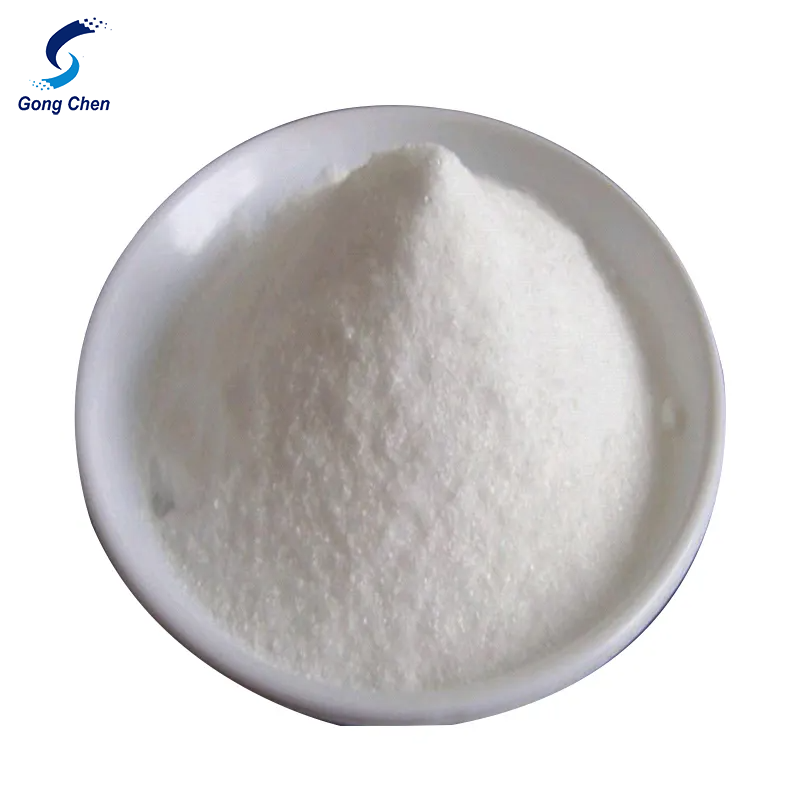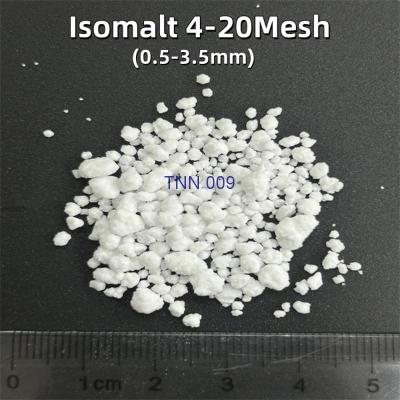-
Categories
-
Pharmaceutical Intermediates
-
Active Pharmaceutical Ingredients
-
Food Additives
- Industrial Coatings
- Agrochemicals
- Dyes and Pigments
- Surfactant
- Flavors and Fragrances
- Chemical Reagents
- Catalyst and Auxiliary
- Natural Products
- Inorganic Chemistry
-
Organic Chemistry
-
Biochemical Engineering
- Analytical Chemistry
-
Cosmetic Ingredient
- Water Treatment Chemical
-
Pharmaceutical Intermediates
Promotion
ECHEMI Mall
Wholesale
Weekly Price
Exhibition
News
-
Trade Service
Q: I often see food or beverages with "0 sucrose".
Is this food safe to eat? Do you really not gain weight?
Q: I often see food or beverages with "0 sucrose".Is this food safe to eat? Do you really not gain weight?
Is this food safe to eat? Do you really not gain weight? sucrose
Answer: Not necessarily
.
.
In fact, the label "0 sucrose" only means that the product is free of sucrose, but not necessarily sugar free
.
There may also be other sugars, such as fructose, fructose, etc.
, which also bring energy
.
According to China's national food safety standard "General Rules for Nutrition Labeling of Prepackaged Foods", "0 sugar" means that the sugar content in every 100 grams or 100 ml of solid or liquid food is not higher than 0.
5 grams
.
.
There may also be other sugars, such as fructose, fructose, etc.
, which also bring energy
.
According to China's national food safety standard "General Rules for Nutrition Labeling of Prepackaged Foods", "0 sugar" means that the sugar content in every 100 grams or 100 ml of solid or liquid food is not higher than 0.
5 grams
.
It can be seen that "0 sugar" means no sugar
.
And "0 sucrose" means that it does not contain sucrose, which does not necessarily mean sugar-free, or even low-sugar
.
The two concepts are different, and we should not confuse them when choosing
.
.
And "0 sucrose" means that it does not contain sucrose, which does not necessarily mean sugar-free, or even low-sugar
.
The two concepts are different, and we should not confuse them when choosing
.
In addition, whether you gain weight mainly depends on your total energy budget.
If your energy intake is greater than energy expenditure, you will gain weight; correspondingly, if your energy intake is lower than your consumption, you will naturally lose weight
.
Therefore, if you want not to gain weight, the key is to rationally arrange your daily diet and exercise, and balance energy intake and consumption
.
If your energy intake is greater than energy expenditure, you will gain weight; correspondingly, if your energy intake is lower than your consumption, you will naturally lose weight
.
Therefore, if you want not to gain weight, the key is to rationally arrange your daily diet and exercise, and balance energy intake and consumption
.
Q: It turns out that "0 sucrose" is different from "0 sugar", so how do I judge whether it is "0 sugar"?
Q: It turns out that "0 sucrose" is different from "0 sugar", so how do I judge whether it is "0 sugar"? A: In order to distinguish whether a product marked with "0 sucrose" has added sugar, it is recommended that you look at it from two aspects:
1.
See the ingredient list
.
If there are ingredients such as corn syrup, maltose, glucose, fructose syrup, honey, etc.
in the ingredient list, it means that it still has sugar
.
See the ingredient list
.
If there are ingredients such as corn syrup, maltose, glucose, fructose syrup, honey, etc.
in the ingredient list, it means that it still has sugar
.
2.
Look at the Nutrition Facts list
.
The Nutrition Facts table will indicate the carbohydrate content and energy content per 100 ml of the product
.
The nutritional content of some foods or beverages will be marked with the content of "sugar", which helps consumers determine whether the purchased product is truly "0 sugar"
.
Look at the Nutrition Facts list
.
The Nutrition Facts table will indicate the carbohydrate content and energy content per 100 ml of the product
.
The nutritional content of some foods or beverages will be marked with the content of "sugar", which helps consumers determine whether the purchased product is truly "0 sugar"
.
It should be noted that products whose raw materials come from natural milk sources or fruit juices are not "0 sugar", so everyone must choose suitable foods according to the ingredient list
.
.
Q: There are still many people who say that sugar is not good and should quit sugar
.
Can you still eat sugar? Are we really going to quit all sugar?
Q: There are still many people who say that sugar is not good and should quit sugar .
Can you still eat sugar? Are we really going to quit all sugar?
.
Can you still eat sugar? Are we really going to quit all sugar?
A: Don't let your guard down on sugar, but it's not necessary to quit sugar completely
.
.
First, sugar also plays an important role in human health
.
As one of the six essential nutrients for human beings, carbohydrates are the most important source of energy and play a vital role in maintaining normal life activities
.
Sugar also has a variety of functions necessary to maintain body functions, such as constituting tissue structure and physiologically active substances
.
.
As one of the six essential nutrients for human beings, carbohydrates are the most important source of energy and play a vital role in maintaining normal life activities
.
Sugar also has a variety of functions necessary to maintain body functions, such as constituting tissue structure and physiologically active substances
.
Many people worry that eating too much sugar will lead to weight gain and obesity
.
There is no need to worry too much about this.
The results of the "Sugar Intake Level and Risk Assessment of Chinese Urban Residents" show that Chinese urban residents aged three and above consume an average of 9.
1 grams of sugar per person per day
.
The per capita sugar intake is not very high, so there is no need to panic
.
But it should be noted that sugar provides "empty energy", that is, it does not contain other essential nutrients such as protein, fat, vitamins, minerals, but only provides energy
.
Too much energy provided by sugar will affect the intake of other foods and nutrients in the diet, and there is a risk of malnutrition
.
.
There is no need to worry too much about this.
The results of the "Sugar Intake Level and Risk Assessment of Chinese Urban Residents" show that Chinese urban residents aged three and above consume an average of 9.
1 grams of sugar per person per day
.
The per capita sugar intake is not very high, so there is no need to panic
.
But it should be noted that sugar provides "empty energy", that is, it does not contain other essential nutrients such as protein, fat, vitamins, minerals, but only provides energy
.
Too much energy provided by sugar will affect the intake of other foods and nutrients in the diet, and there is a risk of malnutrition
.
The key to preventing obesity is to eat a balanced diet, maintain energy balance, and use up excess energy through physical activity
.
The "Dietary Guidelines for Chinese Residents 2016" recommends that the daily intake of added sugars for adults should not exceed 50g, preferably within 25g
.
The sugar content of 500 ml of sugar-sweetened beverages is basically about 50 grams
.
.
The "Dietary Guidelines for Chinese Residents 2016" recommends that the daily intake of added sugars for adults should not exceed 50g, preferably within 25g
.
The sugar content of 500 ml of sugar-sweetened beverages is basically about 50 grams
.
But sugar intake does increase the risk of dental caries and obesity
.
The National Nutrition Plan (2017-2030) advocates extensive special actions focusing on "three reductions and three health" (salt reduction, oil reduction, sugar reduction, healthy mouth, healthy weight, and healthy bones)
.
The Healthy China Action also advocates that urban high-sugar intake people reduce the consumption of sucrose-containing beverages and sweets, and choose natural sweeteners and sweeteners to replace sucrose-produced beverages and foods
.
.
The National Nutrition Plan (2017-2030) advocates extensive special actions focusing on "three reductions and three health" (salt reduction, oil reduction, sugar reduction, healthy mouth, healthy weight, and healthy bones)
.
The Healthy China Action also advocates that urban high-sugar intake people reduce the consumption of sucrose-containing beverages and sweets, and choose natural sweeteners and sweeteners to replace sucrose-produced beverages and foods
.
There are no bad food, only bad dietary habits
.
So sugar can be eaten, but be sure not to overdo it!
.
So sugar can be eaten, but be sure not to overdo it!
(The article in this issue is guided by Liang Dong, associate researcher of the National Center for Food Safety Risk Assessment)







